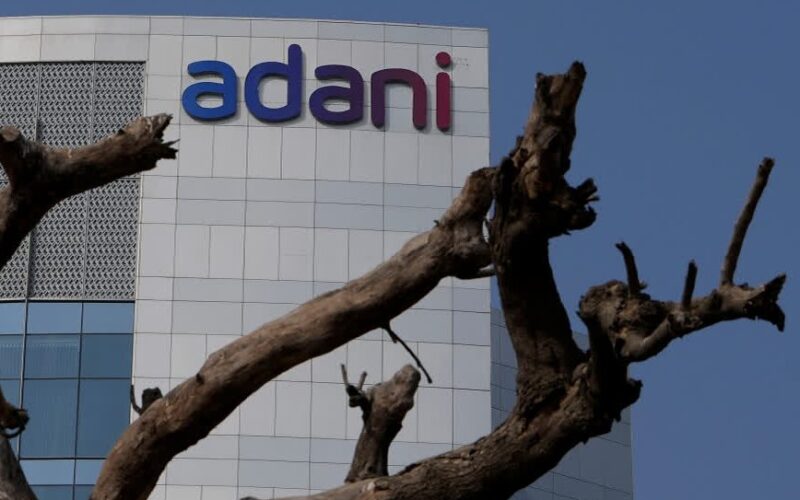Environmental, Social, and Governance (ESG) fund managers are once again grappling with the fallout of a market crisis. Roughly 770 ESG funds worldwide, overseeing an estimated $400 billion in assets, hold Adani Green Energy Ltd. shares, which recently shed a quarter of its value. This decline follows allegations by US prosecutors that Gautam Adani, head of the Adani Group, engaged in a $250 million bribery scheme to secure solar energy contracts for Adani Green.
Adani Green is among several companies in the conglomerate that passed ESG investment screens, only to face mass sell-offs as investors react to alleged governance failures. “Adani Green’s terrible governance was in plain view,” said Henry Kinnersley, co-founder of Snowcap Research, an activist investor that has previously flagged concerns about the company’s renewable energy claims.
The scandal emerges nearly two years after a report by Hindenburg Research accused the Adani Group of systemic fraud and market manipulation. Adani has denied the latest bribery allegations, but news of the indictment has wiped approximately $27 billion off the Adani Group’s combined market value. Meanwhile, India’s capital markets regulator is reportedly investigating potential violations of disclosure rules concerning market-moving information.
Most of the funds holding Adani Green are marketed under European Union regulations as promoting ESG principles or having ESG as a core objective. On average, Adani Green’s shares constitute less than 1% of these funds’ net asset value, but the controversy highlights persistent flaws in ESG screening processes.
ESG funds are tasked with safeguarding clients from environmental, social, and governance risks, often at a premium fee. However, the label has repeatedly fallen short. In past, it was reported that ESG funds held Russian assets during the Ukraine invasion and failed to preempt the governance risks that led to the sudden collapse of Silicon Valley Bank last year.
The continued exposure of ESG funds to Adani Green is “surprising,” according to Mohit Mirpuri, a portfolio manager at SGMC Capital Pte., who divested from the company’s bonds in 2022 due to concerns over excessive leverage. “The presence of ESG funds in Adani Green calls into question their ability to properly assess governance risks,” he said.
Investors who have long avoided ESG are using this as a moment to rip into the industry’s apparent failings.
Barry Norris, founder and chief investment officer of UK hedge fund Argonaut Capital Partners, stated that the Adani Green case demonstrates how ESG principles can mask “malfeasance, chicanery, and skulduggery,” cloaking such issues “under the guise of morality.”
Index providers are also facing criticism for their due diligence processes in awarding ESG ratings, which influence inclusion in exchange-traded funds (ETFs) and passive investment strategies. Bloomberg data indicates that approximately 70 ETFs tracking ESG benchmarks include Adani Green.
The Securities and Exchange Commission (SEC) noted in its complaint that Adani Green leveraged its “A” ESG rating from MSCI Inc. to attract investors during a 2021 bond sale. However, MSCI downgraded the company to “BBB” in July 2023, following allegations of fraud in the Hindenburg report. The rating agency is now “closely reviewing” the latest developments, flagging business ethics and bribery concerns as key issues.
Morningstar Sustainalytics assigns Adani Green a Risk Score of 14.3 out of 100 (with 100 being the worst) and categorises its overall ESG risk as “low.” However, the company’s corporate governance risk is rated “medium” and flagged as a significant issue, accounting for 31% of its overall ESG concerns. Hortense Bioy, global head of sustainability research at Morningstar Sustainalytics, highlighted weak business ethics and political involvement policies, adding that the company faces “increasing financial, regulatory, and reputational risks” due to emerging allegations.
Despite the controversy, Adani Green remains pivotal to India’s renewable energy ambitions, aiming to produce 50 gigawatts of renewable energy by 2030—about 10% of the nation’s goals. Gautam Adani’s close ties to Prime Minister Narendra Modi have bolstered the company’s prominence in the sector.
While governance risks are often seen as a tradeoff in emerging markets—India ranks 93rd out of 180 countries on Transparency International’s Corruption Perceptions Index—Adani Green has positioned itself as a leader in ESG principles. However, the SEC has questioned whether the company adhered to these standards, citing its reputation for environmentally and socially responsible practices.
“The dichotomy of ESG is that many investors chose to ignore the red flags around Adani Green because it operates in the sustainable sector,” said Henry Kinnersley of Snowcap Research. He added that the US indictment undermines the idea that governance should be evaluated based on local norms. “Any company raising capital from US investors should clearly expect to be held to US standards,” he concluded.















